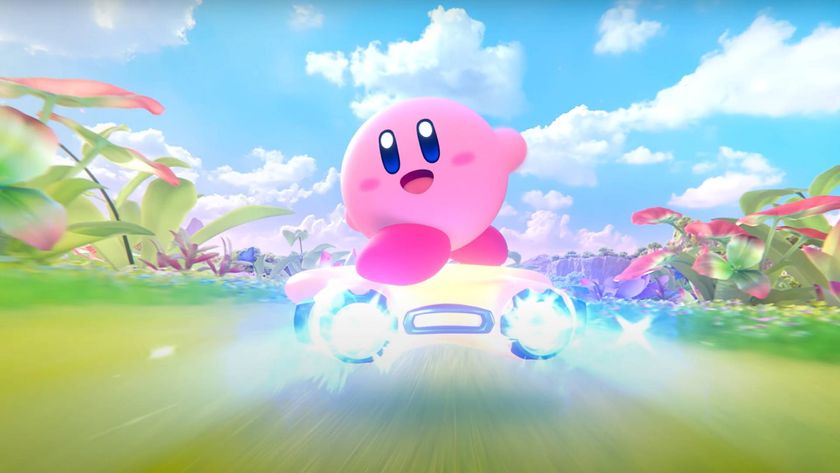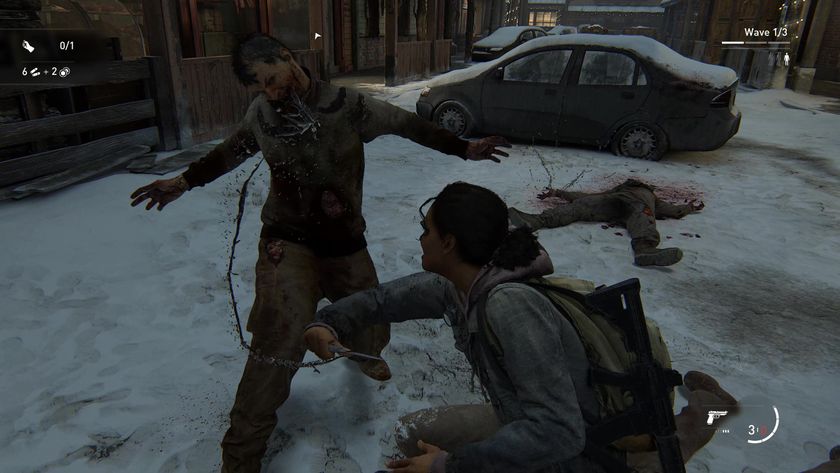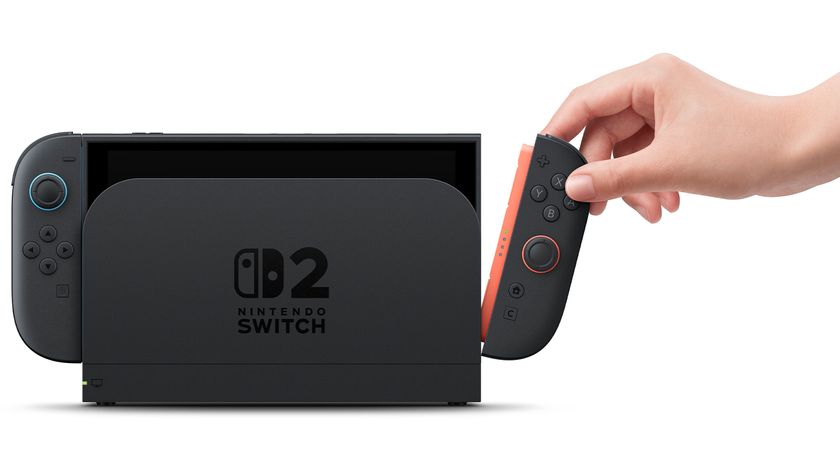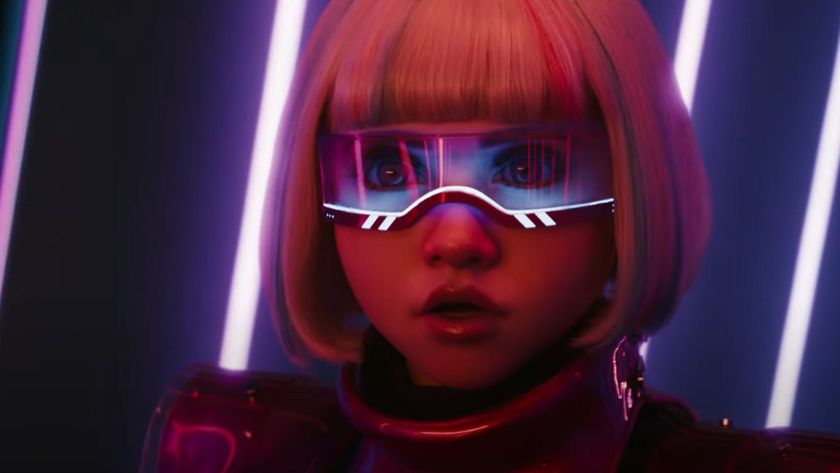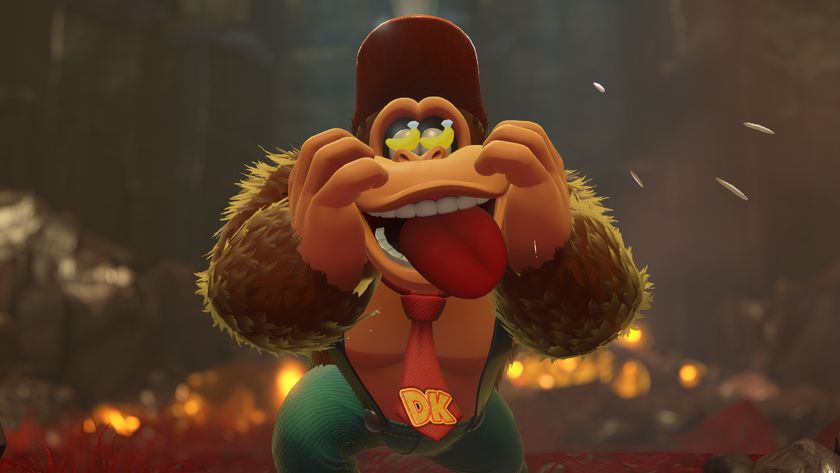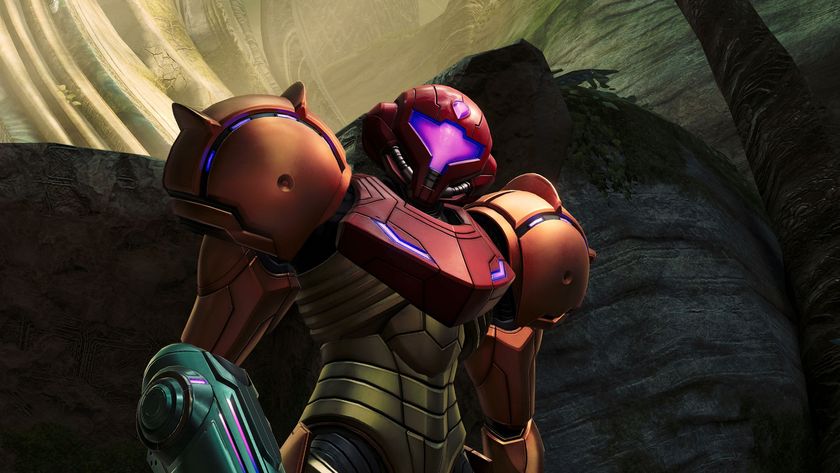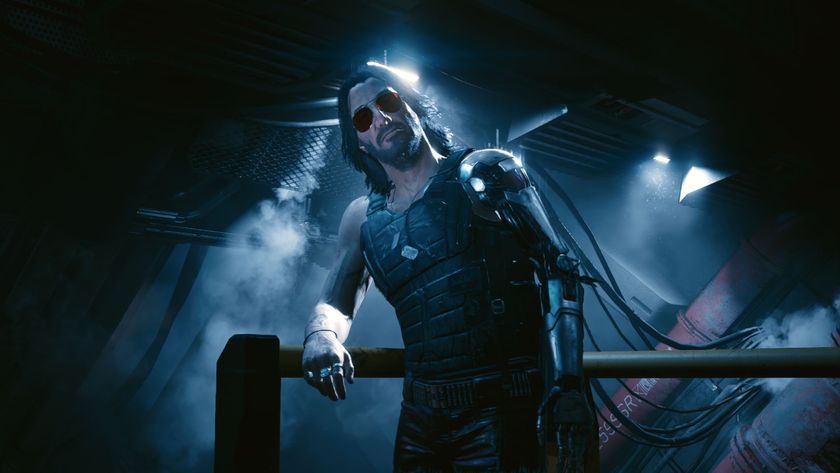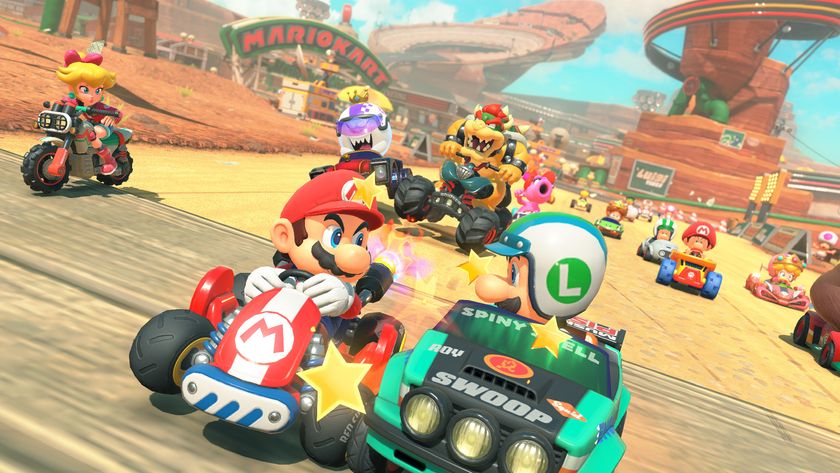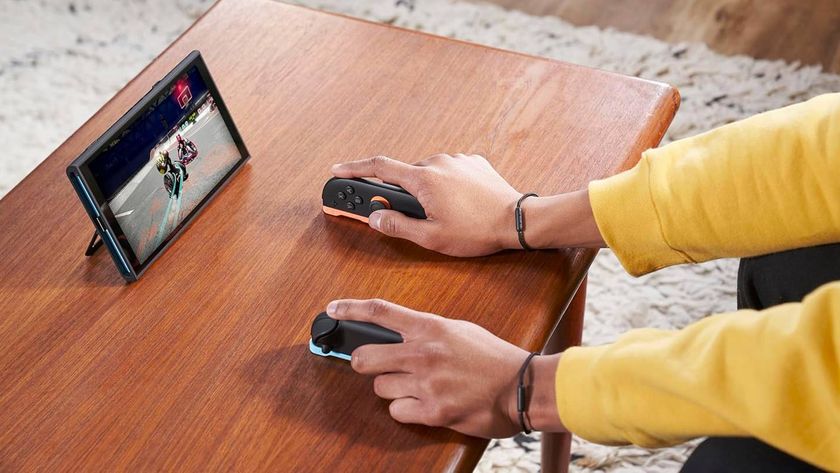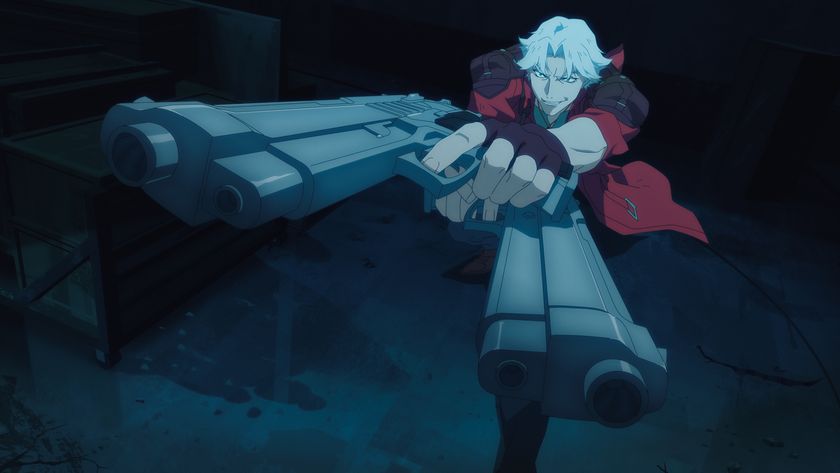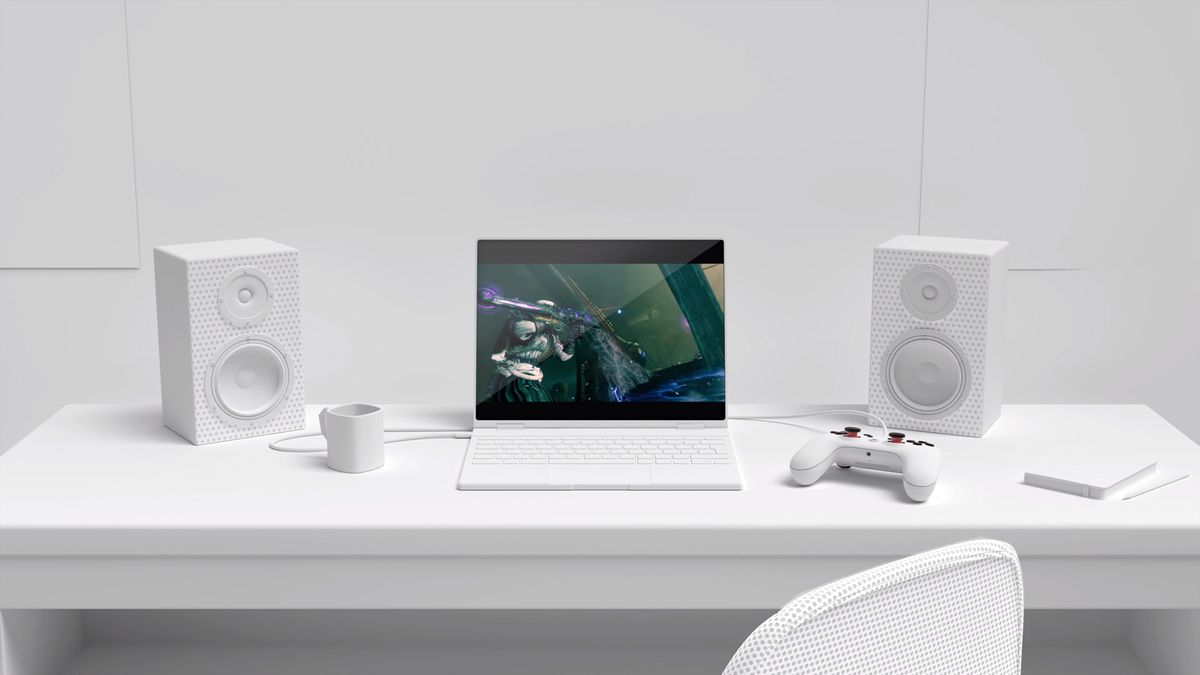
When Google Stadia works as advertised or as otherwise intended, it feels like I'm bearing witness to some kind of minor miracle. I've had Stadia in my life for five days now, and I haven't once had an evening derailed by an untimely "It's time to update!" message – this is it, folks, the future that Sony and Microsoft doesn't want you to have. But before you start packing your PS4 and Xbox One into the nearest bin, you should know that Google's vision for the future of gaming is just that for the time being: a vision. I said right up top that when Stadia works, it feels like a minor miracle, but "when" is the operative word here.
And listen, I get that these are early days for Stadia and that there's still plenty of room for improvement and optimisation in the coming days, weeks, months, and years ahead. But the truth is, your experience with this new cloud-streaming technology is only going to be as good as the access you have to super stable, really reliable, heavenly high-speed internet. Google has been relatively forthcoming with that information since the beginning, but it's only when you attempt to install Stadia in your life that the reality of what that actually means is made clear.
Shattered dreams
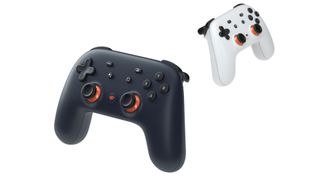
My dream of playing Red Dead Redemption 2 with my six-year-old laptop in my favourite bar was over before it had even begun. The Stadia controller won't connect to the Wi-Fi in my second favourite bar either, nor would it let me play in a medley of coffee shops and cafes in the city of Bath, United Kingdom. The future is here, and it is straight-edge.
Stadia also doesn't work in the 12DOVE offices; my secondary dream of pretending to do work while secretly playing Destiny 2 at my desk is dead and buried. Stadia wouldn't work in a hotel I was staying in last week, it didn't like the hotspot I found as I descended into the London Underground, and it definitely didn't like the internet connection offered up by First Great Western trains – which means I sat there looking like a total idiot with a mechanical mobile gaming grip attached to my Pixel 3a XL (one of only a handful of Google-sanctioned phones Stadia works with at launch) for nothing.
And that's all fine, I suppose. I understand that it isn't entirely the fault of Stadia – that the reality of the service Google is offering here is clashing up against my expectations, and of the Internet service we have access to here in the UK. The alluring pitch of "one place for all the ways we play" had made it sound as if we would be able to play wherever and whenever without restriction, but that's simply an impossibility in 2019. You don't realise how bad the network infrastructure in your local area is until you want to play Shadow of the Tomb Raider anywhere but your apartment – the United Kingdom lives up to its famously terrible reputation in this respect, and our download/upload speeds are rarely ever as good as advertised. Stadia also doesn't work over mobile networks at launch, and hell, even if it did, 5G connections and truly uncapped data limits are nowhere to be seen, so what would be the point?
For the time being then, Stadia (for me, at least) is an apartment-bound experience. That also means that I'm struggling to see how it would fit into my life, as somebody that already spends four-six hours a day playing games. Admittedly, it's not all bad, because unlike an Xbox One or PS4, Stadia has let me play AAA quality games at a mostly stable quality both in bed and in the bath. Yesterday, I played a couple of rounds of Mortal Kombat 11 in the kitchen while I waited for some food to simmer. Last night, when I discovered that my Xbox One X wanted to update and my Switch wanted a charge, Stadia let me immediately jump into Kine within seconds. It might not seem like much, but the rate at which can play (not to mention the speedy load times offered within once you start playing) is truly impressive. There's something to the instant accessibility of gaming on Stadia that really piques my interest.
What's in a connection?

BT tells me I have an active 35.7 Mbps connection. Google tells me I have a 21.7 connection. Were I to listen to the latter, this should be enough to run Stadia stably at 1080p/60FPS, with 5.1 surround and HDR active; listen to the former, I should be able to do all that but with a 4K resolution. Either way, my connection should be good enough to enjoy a solid Stadia experience, but the results have been mixed.
Sign up to the 12DOVE Newsletter
Weekly digests, tales from the communities you love, and more
Let's start with Stadia magic in action. My laptop – a MacBook Pro from 2013 – does not like games. If anything, it actively hates playing them. Last month, I tried to return to indie-supreme FTL: Faster Than Light via Steam and it sounded as if it was about to hit the 120-decibel limit as it introduced my thighs to the concept of scorched earth. Last week, I tried to boot up Disco Elysium, and it crashed entirely. This morning, I sat in bed playing Red Dead Redemption 2 for a few hours in a Chrome browser window over Wi-Fi with little problem. Sure, there was the occasional hitch and stumble, about on par with how I experienced the game the first time around on Xbox One X, albeit without the prerequisite 99.2GB multi-hour download and install first.
I'll be honest, not having to mess around with downloads or updates is such a small quality-of-life improvement, but it feels so liberating. I returned to Destiny 2 for much of the weekend and felt positively aggrieved when I went to compare its performance on Stadia to that of the Xbox One X – the 100GB+ download on console an immediate barrier to entry that Stadia has freed me from. That said, with the Stadia mobile app informing me that to achieve the 'best visual quality' I could be looking to offset up to 20GB of data per hour – even if I were to cap Stadia to 720p resolution I'd still be sacrificing 4.5GB an hour – so I'm not yet 100% convinced that this is a welcomed trade-off in the long run.
The reason I felt the need to go back to Destiny 2 on console to compare and contrast its performance is that I found the shooter's stability to be a little unpredictable when streaming off of the Stadia servers over Wi-Fi. As smooth and crisp as the single-player games ran for the most part – that of Red Dead Redemption 2 and Shadow of the Tomb Raider, for example – I did crash into some stability issues with multiplayer-focused games.
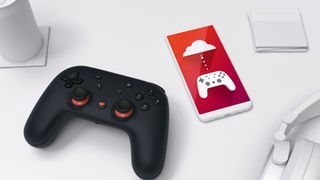
"My connection should be good enough to enjoy a solid Stadia experience, but the results have been mixed"
When streaming Destiny 2 to my TV over Wi-Fi, with the Stadia controller syncing up with a Google Chromecast Ultra, I did experience inconsistent instances of latency, framerate hitching, and complete connection drops. This would range from my character teleporting around an area to sound triggering seconds after an impact on screen – given that Destiny 2 is capable of running at 60 frames-per-second on Stadia (as opposed to the locked 30fps that's standard on console) it's a shame to see such a smooth FPS experience blighted by stability issues. This is over Wi-Fi, of course, but it's still not the smooth, faultless experience I'd have hoped for given that my connection strength supposedly supports Destiny 2 beyond the recommended minimum.
While these connection disruptions were inconsistent, they did seem to increase the longer a session was active, although I admit that I have no real metric outside of anecdotal evidence to test that. What I do know, however, is that with my Chromecast Ultra connected to my router via an Ethernet cable, Stadia was a different story entirely. This is the best connection available, and clearly, the way Stadia was designed to be played. It does mean that I'm having to make an immediate trade-off; while I can stream games anywhere in my apartment, I'll likely experience connectivity issues that will ultimately impact my overall enjoyment. So instead I must sit down and play them on my couch, in front of my TV, where the connection can be hard-wired – but then I don't know why I wouldn't just switch on my Xbox One X and play one of these games that way.
That, in truth, is part of a larger perception issue that Stadia still has to overcome. Outside of launch exclusive Gylt, an indie horror from Rime developer Tequila works, everything else available on the service is available on other platforms. There's little true additional benefit to playing any of these games on Stadia over other platforms right now; games like Ghost Recon Breakpoint have exclusive Stadia features in the works, but they have missed launch, while the likes of Destiny 2 and Red Dead Redemption 2 running performance parity with their PC brethren will only turn so many heads. With Stadia Pro – Google's premium subscription service – offering little more than a resolution boost up to 4K and the promise of free games in the future (starting with Destiny 2: The Collection), it's difficult to understand the impetus behind purchasing these games for full-price on a new service, especially if you are already invested in the services (friends/achievements/trophies/clans/etc…) of the other rival platforms.
Early Verdict
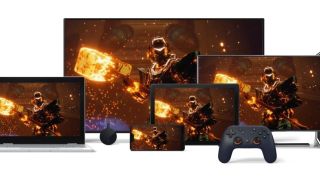
Google Stadia has its problems. At launch, it's a messy service that will no doubt be remembered for its missing features, strange launch line-up, and obtuse rules surrounding set-up, optimisation, and core functionality. But behind it all, there's certainly something special here. I'm still not sure how Stadia fits into my life, the steps I could take to make my home a better environment for it, or even who it is for, but under the right circumstances, it works.
That is in itself impressive. Google has brought cloud-streaming to market in a way that feels more accessible than it has ever done so in the past. That said, there's still a little ways to go before it feels like Stadia has a clear purpose, outside of Google proving that streaming games off of the cloud and into your home with surprisingly little friction is indeed possible. If the circumstances are right, if your connection is strong, then Stadia feels like a potential pathway towards the future for this industry and game-streaming feels like magic. I'm just not sure our network infrastructure – or the way the wider industry considers streaming – is there just yet.
Still, I'll be continuing to test Stadia across the week as more features and games are introduced. I'll be putting the Stadia controller through its paces, and spending a lot more time online as more players begin to flood the Stadia servers.
Want to know how Google put together the technology behind Stadia? Then you'll want to read this in-depth making of Google Stadia feature from our sister publication, Edge Magazine.

Josh West is the Editor-in-Chief of 12DOVE. He has over 15 years experience in online and print journalism, and holds a BA (Hons) in Journalism and Feature Writing. Prior to starting his current position, Josh has served as GR+'s Features Editor and Deputy Editor of games™ magazine, and has freelanced for numerous publications including 3D Artist, Edge magazine, iCreate, Metal Hammer, Play, Retro Gamer, and SFX. Additionally, he has appeared on the BBC and ITV to provide expert comment, written for Scholastic books, edited a book for Hachette, and worked as the Assistant Producer of the Future Games Show. In his spare time, Josh likes to play bass guitar and video games. Years ago, he was in a few movies and TV shows that you've definitely seen but will never be able to spot him in.
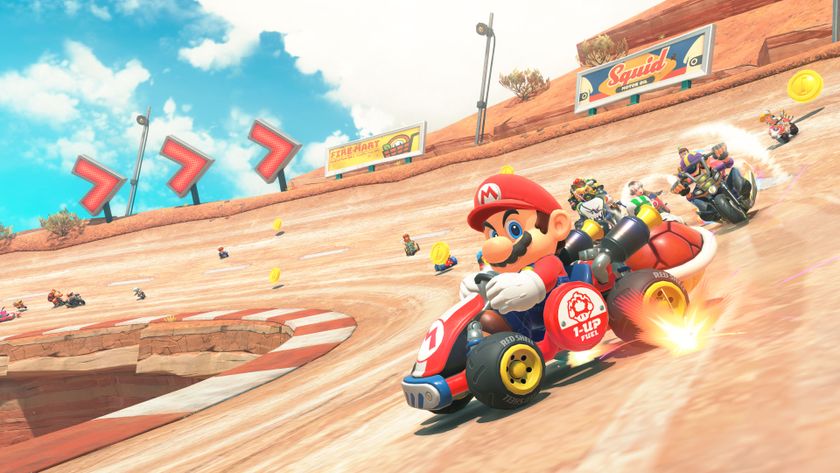
Mario Kart World quietly fixes one of the series' longest-standing annoyances and I suspect I will get hit with 10% fewer red turtle shells because of it
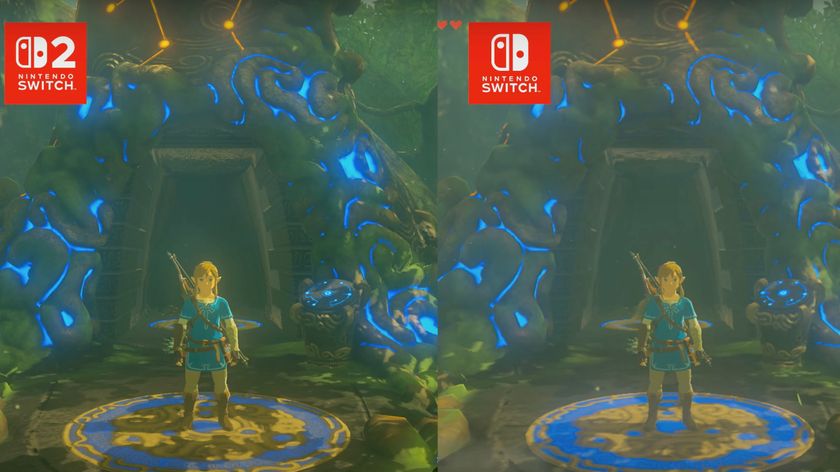
Breath of the Wild looks like a completely different game on Nintendo Switch 2 thanks to ridiculously improved graphics and 5 times faster loading speed
